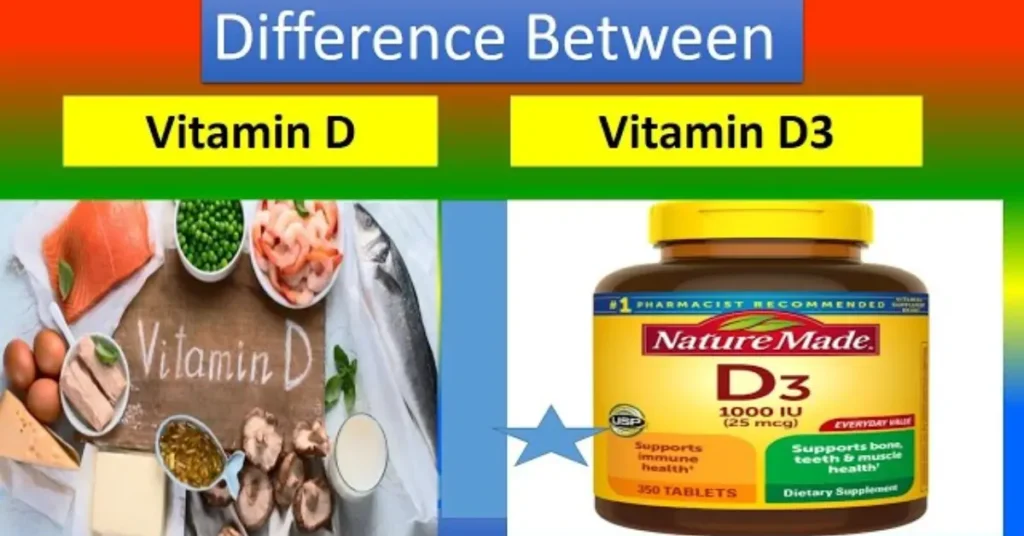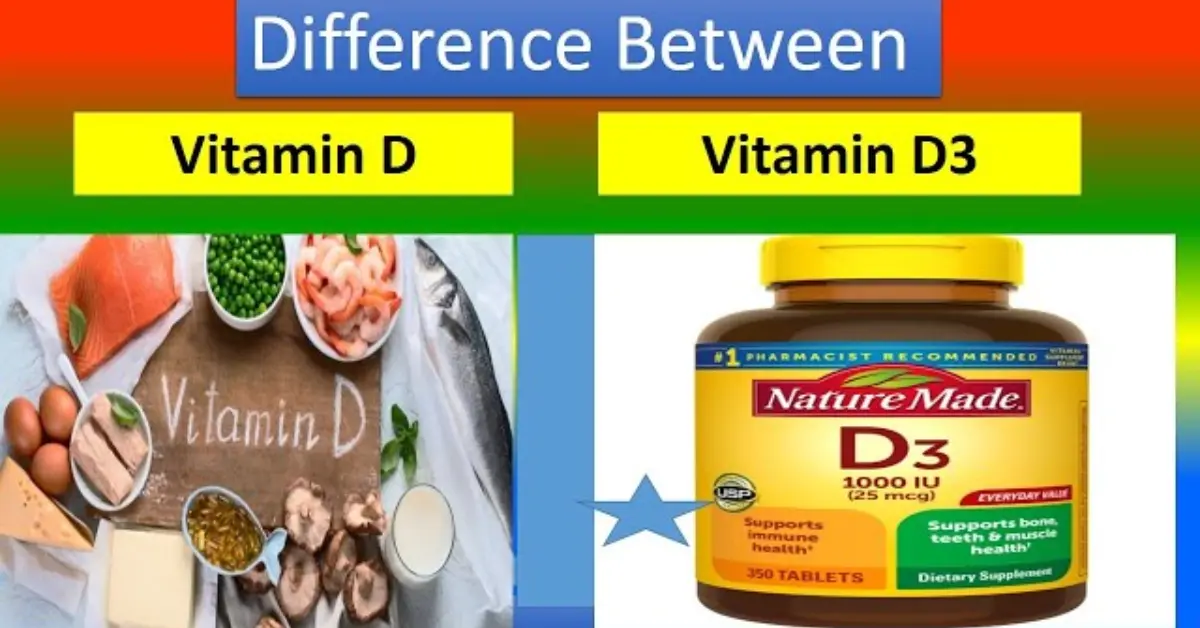Vitamin D, often referred to as the “sunshine vitamin,” is crucial for maintaining several bodily functions, particularly bone health and immune system regulation. While commonly discussed as a single entity, there are actually different forms of Vitamin D and D3. Understanding the difference between these forms is important for nutritional science and for individuals seeking to optimize their health.
Definitions of Vitamin D and D3
Definition of Vitamin D:
A group of fat-soluble secosteroids responsible for increasing intestinal absorption of calcium, magnesium, and phosphate, and many other biological effects. The most important compounds in this group are vitamin D2 and vitamin D3.
Definition of Vitamin D3
This is synthesized in the skin when 7-dehydrocholesterol reacts with ultraviolet light at 290–315 nm wavelengths. It is found in animal products and can also be taken as a dietary supplement.

Table Comparisons
| Feature | Vitamin D (General) | Vitamin D2 | Vitamin D3 |
|---|---|---|---|
| Source | Synthesized in skin, dietary supplements, and fortified foods | Plants and fungi; fortified foods | Animal products; synthesized in skin; dietary supplements |
| Chemical Structure | Secosteroid | Similar to D3, but differs in the side chain and rings | Unique structure with a specific side chain |
| Absorption | Absorbed in the intestines with dietary fats | Less efficiently absorbed compared to D3 | More efficiently absorbed in the body |
| Potency | General term, does not specify potency | Less potent in raising and maintaining vitamin D levels in blood | More potent in raising and maintaining vitamin D levels |
| Conversion in Body | Converted to active form in liver and kidneys | Requires more conversion steps to become active | Converts into its active form more readily |
Frequently Asked Questions (FAQs)
Q: Can I get enough Vitamin D from sunlight alone?
A: While sunlight is a primary source of Vitamin D3, factors like geography, skin pigmentation, and lifestyle can affect UV exposure. In many cases, dietary sources or supplements are necessary.
Q: Which form of Vitamin D is better for bone health?
A: Vitamin D3 is generally considered more effective for maintaining healthy bone density and calcium levels.
Q: Are there specific dietary sources for Vitamin D2 and D3?
A: Vitamin D2 is mainly found in fortified foods and some mushrooms. Vitamin D3 sources include fatty fish, liver, egg yolks, and fortified foods.
Q: How do I know if I need a Vitamin D supplement?
A: A blood test can determine your Vitamin D levels. Your healthcare provider can recommend supplementation based on the results.
Conclusion
Both Vitamin D2 and D3 play significant roles in health, but they differ in source, structure, absorption, and potency. Vitamin D3, in particular, is more efficient in raising and maintaining vitamin D levels in the blood. Understanding these differences can guide individuals in making informed decisions about their dietary and supplementation needs to maintain optimal health. Regular check-ups and blood tests can provide more personalized guidance.
